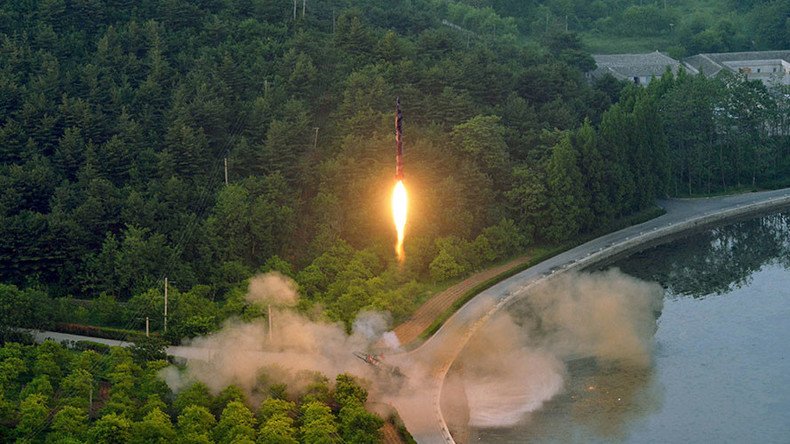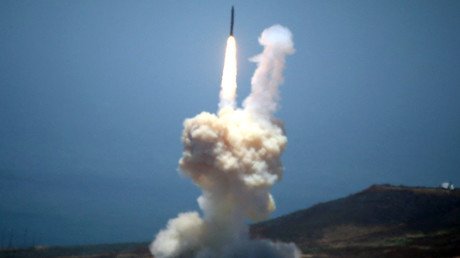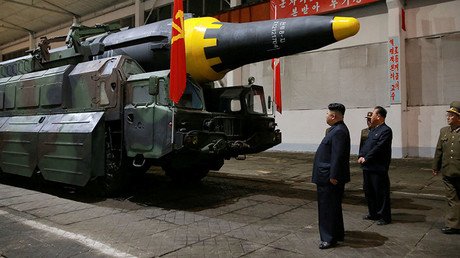Pyongyang condemned the successful US ballistic missile interceptor test from earlier this week as a “risky move” which “will only bring earlier the day when the US mainland will turn into ashes.”
A spokesman for the Strategic Force of the Korean People’s Army told KCNA state news agency that the US ballistic missile interceptor test conducted on Tuesday “is just a serious military provocation that brings to light the US imperialists’ wild ambition for igniting a nuclear war.”
He called the interceptor test a “risky act” that indicates US “preparations for unleashing a nuclear war against” North Korea. Such “foolhardy moves” of the US military only prove that North Korea’s “bolstering the nuclear force for self-defense is entirely just,” according to the spokesman.
The US military, however, did not call the target of the test an “an ICBM from North Korea” or even imply it. An unnamed Pentagon official told Stars and Stripes that the test was planned “years in advance” and was not a direct response to recent North Korean ballistic missile tests.
The test was hailed by the Pentagon as an “incredible accomplishment” representing a “critical milestone” for the anti-missile program.
“This test demonstrates that we have a capable, credible deterrent against a very real threat,” US Missile Defense Agency chief Vice Admiral James D. Syring said in a statement.
North Korea, however, dismissed the results of the test as a “bluff,” as the ICMB interception system, according to the spokesman, would not prevent the “shower of nuclear strike” from North Korea.
“They are now bluffing, bragging about the ‘success’ in the test and the efficiency of the missile interception system. But the DPRK considers it just as a foolish act of those driven to despair,” the spokesman said. “The last-ditch gambling of the Trump administration for a nuclear war will only bring earlier the day when the US mainland will turn into ashes.”
The ability of Pyongyang to “hit US mainland” at the moment is doubtful, as all of the recently tested ballistic missiles have been short to medium range. The latest missile, launched on May 28, flew 450 kilometers before landing in the Sea of Japan, about 300km off the Japanese coast. In May, Pyongyang announced that it had successfully tested the Pukguksong-2 intermediate range ballistic missile as a projectile was detected landing in international waters off Japan’s east coast.
North Korea, poses a “clear and present danger” to the US, Defense Secretary Jim Mattis said on Friday, stressing that Pyongyang actions “are manifestly illegal under international law,” as they violate UN Security Council resolutions.
“The current North Korean program signals a clear intent to acquire nuclear-armed ballistic missiles, including those of intercontinental range, that pose direct and immediate threats to our regional allies, partners and all the world,” Mattis said.



